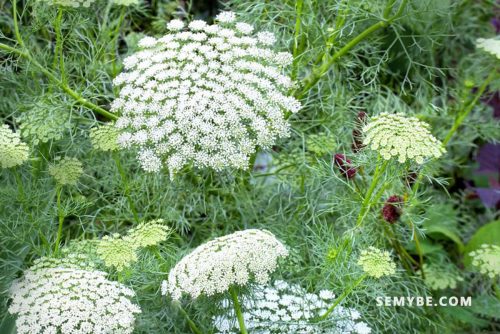
Khella (Ammi Visnaga)
History and use
Eurasia and North Africa, the khella grows wild in the Middle East and other Mediterranean countries and has also become acclimatized in Australia and South America. The seeds are enclosed in tiny fruits which, before being completely ripe, are transplanted at the end of the summer.
Description of the plant
The khella, aromatic plant with a bitter taste, has more therapeutic than culinary virtues. It is an effective muscle relaxant. It has been used for centuries to relieve the pain caused by kidney stones. Khella is a substance that is effective against spasm and used in asthma medications.

Curative action
Kidney stones
Khellin is a traditional Egyptian remedy for eliminating kidney stones by relaxing the muscles of the ureter, it reduces the pain caused by the calculus and fosters evacuation.
Asthma
This plant is present in case of asthma, because it is not dangerous, even for children. lt is generally not very effective during crises, it nevertheless decreases the frequency.
Other respiratory diseases
Khella is very effective against various respiratory disorders (bronchitis, emphysema and whooping cough).
Dental hygiene
In Spain, Andalusians once washed their teeth with the seeds of this plant.
Uses
Warning
- Do not use without medical advice.
- Long-term use causes nausea, migraines and insomnia.
- Plant subject to legal restrictions in some countries.
- In infusion, this plant relieves asthma, bronchitis and kidney stones.
- Powder is present to treat angina.




